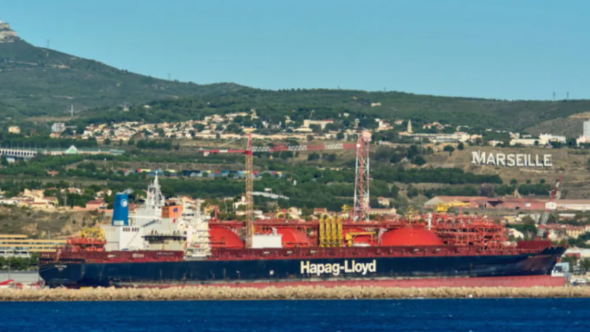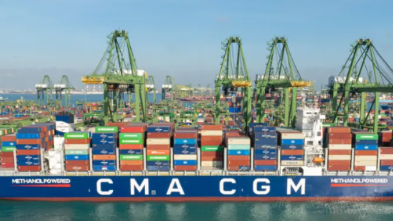Recently, the U.S. Department of Energy (DOE) issued an order removing regulatory barriers to the use of liquefied natural gas (LNG) as marine fuel. This marks a significant policy shift that could accelerate the maritime industry’s transition to alternative fuels.
The new order revises a directive issued by the Biden administration in December 2024 to JAX LNG, which imposed additional regulations on LNG bunkering operations. Under the previous directive, ship-to-ship LNG transfers for marine fuel were classified as exports under the Natural Gas Act (NGA) if the receiving vessel was foreign-registered, regardless of whether the transfer took place at a U.S. port, in U.S. waters, or in international waters. As a result, companies like JAX LNG were required to obtain DOE export authorization.
By issuing the Rehearing Order, the DOE is now revoking its jurisdiction over LNG marine fuel transfers occurring at U.S. ports, in U.S. waters, or in international waters. “Today’s action is an important step in reducing regulatory burdens and supporting continued growth in this critical segment of the LNG market,” said Tala Goudarzi, Acting Assistant Secretary for the Office of Fossil Energy and Carbon Management.
Under the revised regulations, the only bunkering-related activity that will still be classified as an export is when a ship-to-ship LNG transfer occurs in foreign territorial waters, including foreign ports. The DOE has maintained JAX LNG’s authorization to export LNG via ISO containers.
JAX LNG is a small coastal LNG facility near Jacksonville, Florida, supplying LNG fuel to a variety of vessel types, including cruise ships, car carriers, oil tankers, and container ships.
This regulatory shift comes as the maritime industry increasingly adopts LNG as fuel. According to the International Energy Agency (IEA) Gas Market Report from January 2025, the number of LNG-fueled vessels is expected to nearly double by 2028, exceeding 1,200 ships.
Interest in alternative fuels within the maritime sector continues to grow, with a 38% year-over-year increase in alternative-fuel vessel orders in 2024, totaling 515 ships. LNG dominates these orders, with 264 vessels commissioned, more than double the previous year’s figure.
Container ships and car carriers are leading this transition, accounting for 62% of all alternative-fuel vessel orders. Notably, 69% of all container ship orders in 2024 were for vessels capable of running on alternative fuels, with LNG being the preferred choice for 67% of them.
The DOE’s decision aligns with the broader industry trend toward cleaner fuels in response to increasingly stringent emissions regulations. As the maritime sector continues its decarbonization efforts, this regulatory change could serve as a catalyst for the further adoption of LNG across the global fleet.

Last
Surge in LNG-Fueled Vessel Orders as DOE Policy Shift Drives Industry Change
With the addition of the 2,433 TEU vessel Little Concert (built in 2023) to its chartered fleet, Hapag-Lloyd has surpassed 1 milli

Next
CMA CGM s Dual Fuel Methanol Vessel IRON Arrives at Port of Singapore, Ushering in a New Era of Green Shipping
The first vessel in CMA CGM’s groundbreaking series of 12 dual-fuel methanol ships, the CMA CGM IRON, has made its maiden call at
